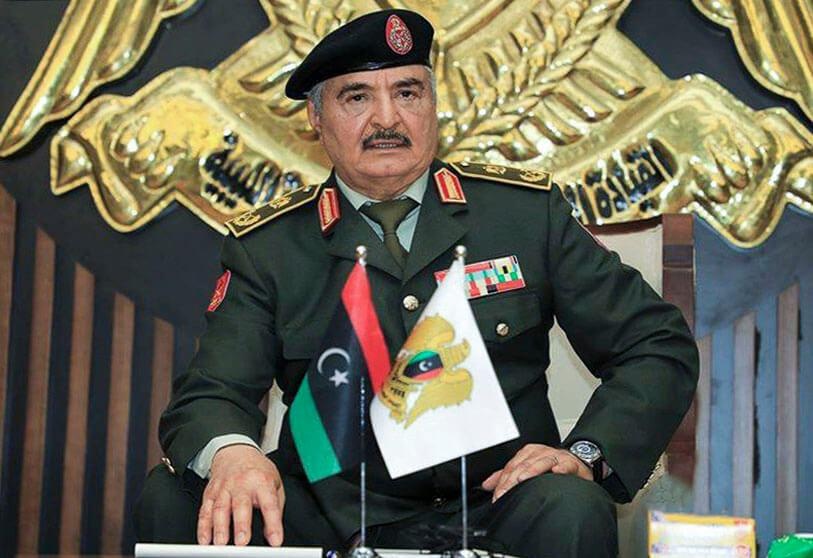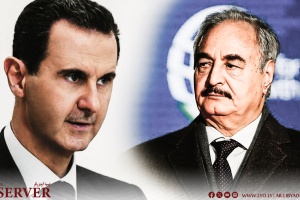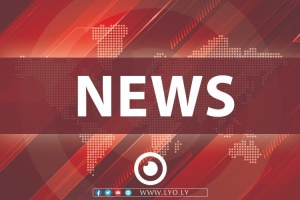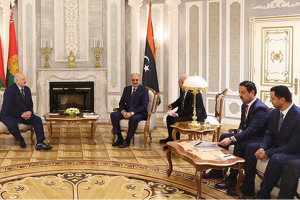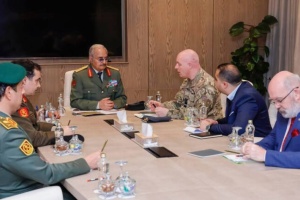The UN Committee of Experts on Friday released a report detailing the efforts of renegade military commander Khalifa Haftar to consolidate his power by increasing his control over the army, social, and economic life in eastern Libya.
Covering the period from April 25, 2022, to July 17, 2023, the report highlights how Haftar and his family developed a plan to strengthen control over the army's military, financial, and strategic operations following their unsuccessful attempt to control the capital, Tripoli, in 2019.
The report documents how Haftar recruited family members as commanders of military factions to secure control over the military institution.
The appointment of Haftar's second eldest son, Khaled, as commander of the 106th Brigade, along with his son-in-law, Ayoub Busif Al-Ferjani, and his cousin, Bassem Al-Bouayshi, to head the 166th and 155th battalions, respectively, was aimed at limiting the rise of a military figure outside Haftar's circle within the army's ranks. These appointments strengthened the Haftar family's grip on the army, the committee said.
On May 3, Haftar ordered the 115th brigade, headed by Abdel Fattah Al-Nadouri, the son of the so-called Chief of Staff of Haftar's forces, to be placed under the direct command of the Khaled Haftar-led 106th Brigade.
The report indicates that this move was opposed by the Chief of Staff of Haftar's forces, Abdurazzak Al-Nadouri, who sought to shore up the loyalty of his tribal base but to no avail.
Although local tribes in Tobruk maintain a degree of autonomy and influence, they have been unable to challenge the authority of Haftar's self-styled army. The report notes that there is currently no significant military force operating outside the direct control of Haftar's inner circle in the east of the country.
The Tariq bin Ziyad brigade, led by Saddam Haftar, was also given a prominent role in the east, according to the report. Meanwhile, Belkacem Haftar worked to strengthen the family's influence within the House of Representatives and the rival administration in the east.
The Haftar family established a patronage network that directly controls military movements, the public sector, and the political decision-making process. As a result, the family has exerted direct influence on the national political process, which cannot move forward without their consent, the report stated.

